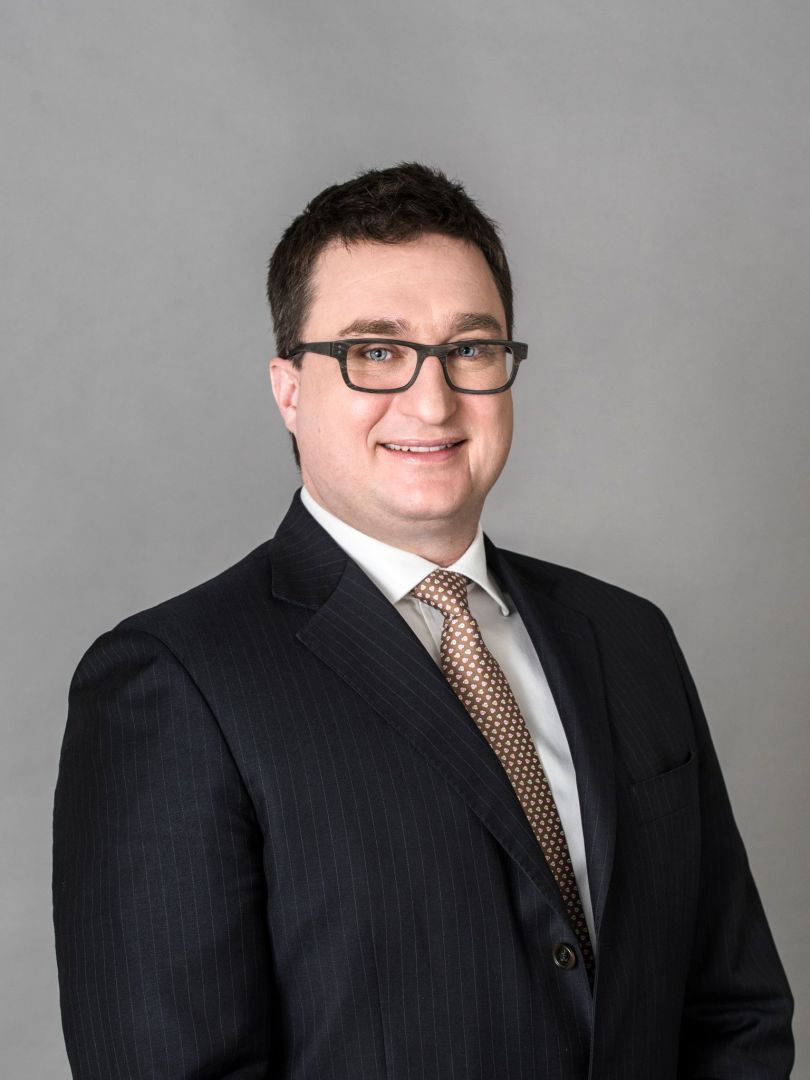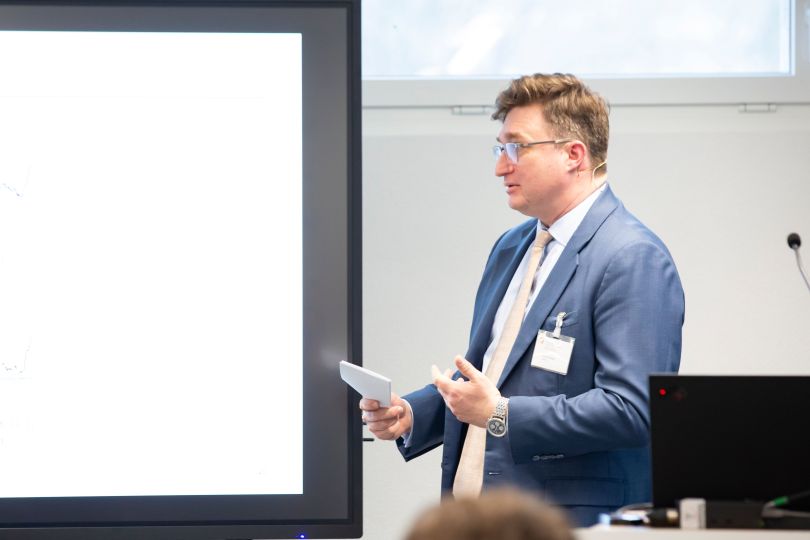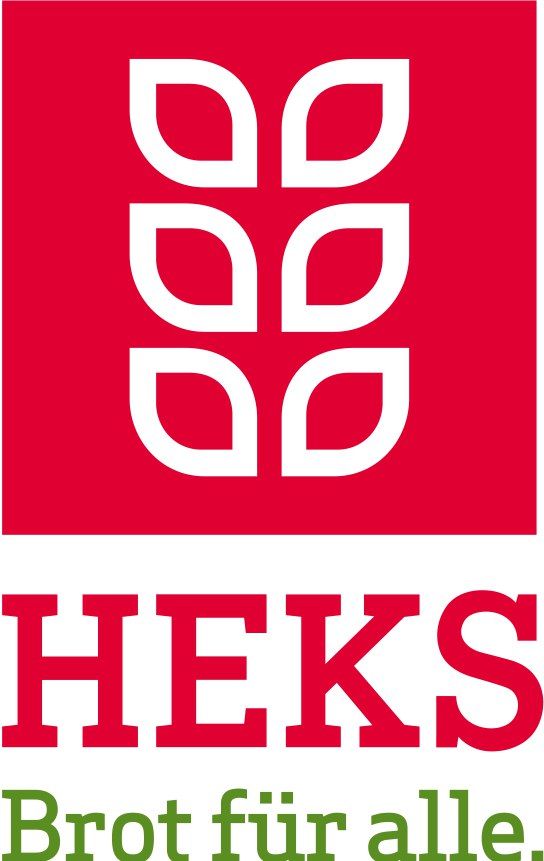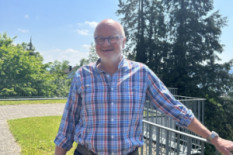The answer is obvious: give Ukrainians a fishing rod to catch their own fish instead of providing monthly financial support. Of course, I am referring to those segments of the population who are unable to work: the elderly, the sick, and children; as for those people who can and want to work, we need to create conditions and motivation for them. By the way, the employment of Ukrainians from all sides can improve this long-lasting situation, which is unknown when it will end.
Employers show interest in potential workers from Ukraine, most of whom have a good education, especially in new technologies or sectors with a labor shortage, such as HoReCa (public catering and hotel industry), medical services, or the resource-intensive agricultural sector. However, according to statistics at the beginning of autumn 2022, slightly over 10% of residence permit holders in category S have integrated into the labor market. Although this percentage is slightly higher than other national categories of asylum seekers, it is still relatively low.
The Swiss Employers' Association welcomes companies' efforts to promote the integration of Ukrainians into the labor market. To learn more about Swiss companies' interests, challenges, and needs regarding the employment of Ukrainian refugees, UPS commissioned the research institute Sotomo to conduct a survey. It was conducted from July 18th to July 25th, 2022, using the B2B panel AmPuls among 367 managers of German and French companies. The survey showed that 56% of Swiss companies are interested in employing refugees from Ukraine. Nearly every tenth company has already hired at least one Ukrainian, and most employers (85%) are satisfied with their services. One of the main motivations for companies is the opportunity to contribute to solidarity efforts. Essential factors such as the high quality and motivation of Ukrainian workers are also mentioned.
Official statistics conducted in Poland at the end of last year by the Research Center of the University of Warsaw are impressive: Ukrainians in Poland paid 2 billion euros in taxes, three times more than the country spends on refugees. "We spent 3.5 billion zlotys (750 million euros) on assistance to Ukrainians, but according to calculations by Bartosz Marchuk, Vice President of the Polish Development Fund, we received 10 billion zlotys (2 billion euros) in taxes they paid. Poland indeed spends a lot on Ukrainian refugees (currently over 5 million in the country). Still, it receives even more," says Mateusz Duszyk, a professor at the Center for Migration Studies at the University of Warsaw.

Read about the obstacles hindering the employment of Ukrainians and the possibilities to improve this situation in the interview with Vincent Riesen, Director of the Licensing Department of the Valais Chamber of Commerce and Industry. www.cci-valais.ch
Vincent: At the beginning of our conversation, I would like to say that I am pleased to meet you and interested in the employment of Ukrainians. I fully support Ukraine in its struggle for self-determination and the collective security of Western Europe against the imperialism of the despotic and corrupt Kremlin. I see Ukrainians as a nation of independent people who are developing and liberalizing, with good education and technical skills, tremendous economic potential, and opportunities.
Which sectors of the canton's economy can Ukrainians currently be employed in?
Vincent: All sectors of the economy, from construction and technical professions to healthcare and hospitality, including gastronomy and the hotel business, are currently seeking skilled workers. In fact, in Switzerland today, job vacancies exist in all professions.
What, in your opinion, generally complicates the employment of Ukrainians with status S and the right to work?
Vincent: According to statistics from the Sotomo Institute, most employers primarily see the problem in the lack of language skills and expect additional intensive language programs from the federal government and cantons. The companies' most prominent wish is for more persistent actions from the authorities to organize language courses for Ukrainian workers: 62% expect the Confederation and cantons to work on better integration of the Ukrainian labor force by offering language courses. One-third want more secure planning in terms of work and residence permits.
Switzerland has the most accessible and liberal labor market in Europe, with no problems with access to work. As an economist, I see a deeper problem: many people have childcare difficulties. In addition, the situation is complicated by the insufficient mobility of potential workers, as in most cases, they live in boarding houses or holiday homes high up in the mountains, sometimes more than 5 kilometers away from the nearest transport hub, without the ability to independently choose accommodation. Therefore, it is tough to imagine professional activity when every day you need to travel 5 kilometers to reach the train station and then commute to the workplace, which is not always located close to the station. Ultimately, not everyone living under such conditions has the opportunity to work in tourism or agriculture to find a job close to their place of residence.
Now the next problem arises: what to do with children? Yes, this is undoubtedly a challenging question, not only for Swiss families. However, as far as I know, Ukrainian families living in cantonal dormitories have created a solution: they create microgroups of children taken care of by one person. In contrast, others can go to work, then rotation occurs. However, this is possible mainly in boarding-type institutions.
I think it would be good to establish communication between Ukrainian refugees who can voice their needs and obstacles in finding work, and social welfare centers and migration services that interact with business associations, companies, and industrial enterprises. It would be right to develop a vision and strategy at the municipal level and mechanisms for financial protection when searching for housing and create targeted intensive language courses that provide a specific vocabulary for work in certain fields. As for language courses, it's good that a small amount of 3,000 francs is allocated at the federal level for integration courses. However, I believe directing this opportunity to specific employment-related courses would be appropriate.
The S protection status has been extended for one and a half years, and it would be economically sensible to create mechanisms for employment rather than just waiting for the expiration of this status. In any case, a sufficient number of Ukrainians can return home when the war ends. Still, we already have sufficient experience in Switzerland with the culture of integration and several successful migration waves integrating European nations through work. So it's worth utilizing this experience.
Work can be a means of survival, but probably not for everyone, and this should be taken into account. However, I believe we should give everyone who desires it such an opportunity, explaining to them in advance how it works in Switzerland.
So far, I do not see coordinated interaction. Still, our conversation can already be seen as a starting point for organizing such a coalition in communication at the canton level in Valais.

What else, in your opinion, hinders Ukrainians from finding work?
Vincent: In addition to mobility issues, caregiving responsibilities, lack of language skills, and insufficient collaboration between social and economic services for migrants and municipalities, there is also the fact that Ukrainians do not understand how the job market works in Switzerland. In my opinion, the real problem is not a demand issue for labor (i.e., employers) but rather a supply issue (i.e., workers) in the labor market. We must look at individuals who want to work and consider each situation individually. If you are interested in finding work, you can collaborate with us as we are currently considering what we can do at the institutional level in each case. What other questions remain unanswered? Validation and recognition of Ukrainian diplomas. I think we can find pragmatic solutions because we already know about the so-called validation of acquired knowledge and existing competencies in Switzerland. We have experienced several migration waves and have enough cases where people who started with work cases in companies have stabilized and established themselves, thus confirming their high language and professional skills at level C, which have been recognized as valid.
Our task is to work together to truly understand the needs of potential Ukrainian workers and improve their access to the job market because in Switzerland, a free and open society, there has long been a culture of labor migration.
More information on the survey results from the Sotomo Institute:
1.Company attitudes toward hiring workers: Does the company plan to take measures to hire people from Ukraine with S protection status? 56% do not have specific plans, but they have basic intentions.
2.Are employers satisfied with employees with S status in companies that have already hired at least one person with this status? 85% are satisfied.
3.Do these companies plan to hire more Ukrainians with S status? 49% of companies that have already hired at least one Ukrainian have the intention to hire more Ukrainians with the mentioned status.
4.What are the reasons for hiring individuals with S status? 50% want to contribute to solidarity, 30% feel a shortage of skilled workers or labor force in Switzerland, 30% emphasize the high qualifications of Ukrainian workers, 28% advocate for highly motivated Ukrainian workforce, 8% see advantages in moderate wage requirements for Ukrainian workers.
5.Attitudes toward extending the duration of stay: 57% of companies favor extending the right to residence during work.
6.Expectations regarding the influence of the state and cantons: 62% of companies expect the Confederation and cantons to take measures to improve the integration of Ukrainian workers through language courses. One-third of them would like a more active role in regional employment centers and greater clarity in planning regarding work and residence permits.
7.Readiness of companies and their associations to participate in the integration of Ukrainian refugees into the Swiss job market: 51% are ready to create related internship or mentoring programs, 41% are ready to offer vocational training (pre-vocational training, apprenticeships), 28% are ready to participate in the creation of sectoral job exchanges, 15% are ready to seek and hire Ukrainian refugees actively.
8.Attitudes towards contributing to the reduction of labor shortages: 52% believe that refugees from Ukraine could contribute to reducing the labor shortage in the hotel and restaurant sector. The majority of companies in the healthcare and social security, construction, and information and communication services sectors also believe that these people could help alleviate the shortage in their sector. In contrast, the potential of Ukrainian refugees is considered less important for reducing labor shortages in industrial companies.
The obtained sample was created taking into account the company size, business sector, and language region using the IPF method (iterative proportional fitting, also known as "raking" or "royal coefficient") to make the results representative of German-speaking and French-speaking companies in Switzerland.

Helpful information for skilled Ukrainians:
NEKS Mos-Bern, a specialized center for supporting skilled migrants, offers free support to those needing professional integration. Assistance includes qualification assessment and support in diploma recognition for Ukrainians.
Offer for skilled Ukrainians:
Qualification assessment and diploma recognition support: NEKS Mos-Bern, a specialized center for supporting skilled migrants, offers free support to those needing professional integration.* Qualification assessment: You tell us what you have studied, what professional experience you have gained, and your competencies. We analyze the information provided and suggest possible steps for your professional integration.
Assistance in submitting applications for diploma recognition: We assist you in preparing applications for diploma recognition and introducing them to the relevant institution. If your German language skills are insufficient, we can interview in English or provide a translator.
Contact us: To schedule an interview, please email mosaiq-bern@heks.ch.
Please provide your name, address, and telephone number.
If you have a resume, please attach it.
For any questions, please call: 031 385 18 31 or 031 385 18 30.
The Canton of Bern finances this initiative.
HILFSWERK DER EVANGELISCH REFORMIERTEN KIRCHE SCHWEIZ
MosaiQ Bern Burenstraine 12
CH 3007 Bern







